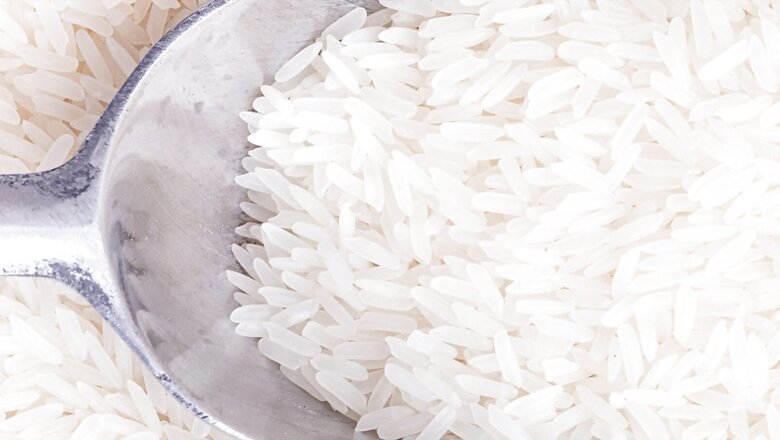
views
India on Friday banned the export of broken rice to check rising retail prices and boost domestic supply after a fall in sowing area is projected to lower the country’s production by 10-12 million tonnes this kharif season. A 20% export duty has also been imposed on non-basmati rice except for the par-boiled, to discourage exports.
Explaining the rationale behind the ban, Food Secretary Sudhanshu Pandey quoted figures of broken rice exports the over the past four years and said there has been an “absolutely abnormal” rise in shipments of broken rice and the broken grains were also not available in sufficient quantity for animal feed as well as ethanol blending programme.
India, the world’s second-largest rice producer after China, commands a 40% share in the global trade. The country exported 21.2 million tonnes of rice in 2021-22, of which 3.94 million tonnes were basmati rice.
Pandey said the country exported 3.89 million tonnes of broken rice in 2021-22, a sharp jump from 1.22 million tonnes in 2018-19. “It (export) has multiplied almost 42 times. So this is not (just) abnormal increase in exports. This is absolutely abnormal,” Pandey said.
India’s total rice exports rose to 21.23 million tonnes in last fiscal year from 17.78 million tonnes in the previous year and 9.51 million tonnes during 2019-20.
In April-August period of FY23, the country has already exported 9.35 million tonnes rice as against 8.36 million tonnes in the year-ago period. “During April to August this fiscal, the export share of broken rice increased to 22.78 per cent as compared to the 1.34 per cent in the corresponding period of 2019-20,” the secretary said.
In 2019, the share of broken rice was just 1% of the total rice exports, while now it has shot up to almost 23%, a jump the food secretary said was “very, very abnormal”.
Pandey also pointed to the use of broken rice in production of ethanol. In a first, 14 lakh metric tonnes of broken rice was lifted by the distilleries for ethanol from the FCI this year against 80000 LMT earlier.
Further, he said, the imposition of export duty on all non-basmati rice except par-boiled, would help prices to cool down. International price of Indian rice (non-basmati and others) is around Rs 28-29 per kg, which is higher than the domestic price.
No change of policy is done in par-boiled rice so that farmers continue to get good remunerative prices, according to a government presentation made during the briefing. Pandey said that there is neither a ban nor customs duty on exports of basmati rice.
Shipments of basmati rice fell to 3.94 million tonnes in last fiscal year from 4.63 million tonnes in 2020-21. However, during April-August of this fiscal, the exports of premium basmati rice went up to 1.82 million tonnes as against about 1.7 million tonnes in the year-ago period.
On Thursday, the government imposed a 20% export duty on non-basmati rice except for par-boiled rice.
As on September 2, the area under the paddy crop was down by 5.62 per cent at 383.99 lakh hectare in the ongoing kharif season due to poor rains in some states.
According to the Food Secretary, rice production could fall by 10-12 million tonnes during this kharif season due to a decline in paddy sowing area. However, he asserted that the country will have surplus production in rice and this is an initial estimate based on drop in acreage and average yield.
Read all the Latest News India and Breaking News here




















Comments
0 comment